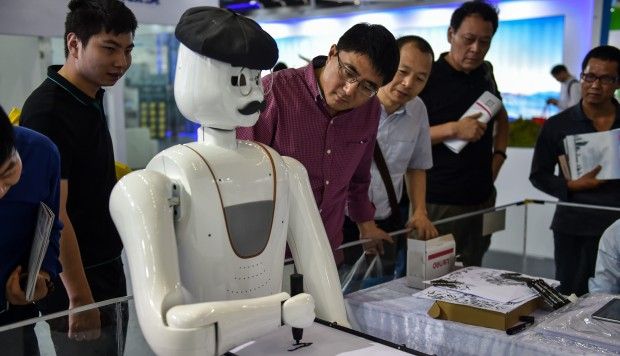Mar 17, 2018
Let the robots have the damn jobs—all of them!
Posted by Genevieve Klien in categories: economics, employment, robotics/AI
There are several ways we can deal with the troubles that lie ahead during the transition to full automation. Some experts and companies are exploring basic income, the centuries-old idea of giving unconditional money to all citizens, enough for them to live their lives. Other thought leaders such as Bill Gates are proposing robot taxes, where companies that use automation pay certain fees for the jobs they take away from humans. Other solutions might emerge.
Automation will continue to move forward at an accelerating pace. We don’t need to fear about the destination. Instead, we must prepare ourselves for the rocky road ahead. I’m not worried about the robots taking all the jobs. I’m worried about them leaving some to the humans.


 John Oliver is a crossover who bridges the art of a comedian with the reporting and perspective of a liberal political pundit. Even detractors acknowledge that Oliver addresses serious issues with unusual wit and humor.
John Oliver is a crossover who bridges the art of a comedian with the reporting and perspective of a liberal political pundit. Even detractors acknowledge that Oliver addresses serious issues with unusual wit and humor.










